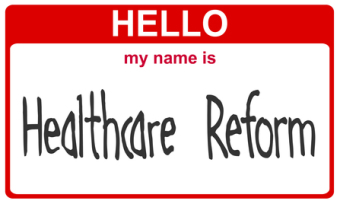 "Reality is merely an illusion, albeit a very persistent one."- Albert Einstein
"Reality is merely an illusion, albeit a very persistent one."- Albert Einstein
From the outside looking in, becoming a medical student is not unlike scoring one of Willie Wanka's golden tickets. Most people see you as someone who is on the fast track to living a life of your dreams. They hear you are going to be a doctor and already picture you healthy and happy, with a condo at the beach. Sadly, the burnout rates and frustration amount physicians are on the rise, especially in primary care, and this trend does not seem to be changing any time soon.
Medicine is a culture with very rigid structure. Each type of physician is supposed to fit into a predetermined personality, way of practice, and even work schedule. There is a certain amount of brainwashing that is built into the system and it can be difficult to dream big and chart your own path in this sort of environment.
We are well into the graduation season and this means there will soon be many med students embarking on a new journey as residents, and many college grads preparing to hit the books as medical students. I thought this would be a good time for some tips on Doing What You Love. For that we turn to someone who has helped many people follow there dreams...
 Enter Leo Babauta, the founder of ZenHabits.
Enter Leo Babauta, the founder of ZenHabits.
I wrote the first words of ZenHabits more than five years ago, I had no idea those few keystrokes would change my life.
I thought I was doing nothing more than reflecting on the changes that had been happening in my life, sharing a bit about what I learned with a handful of friends. I thought those tinkling of computer keys would fade into the void, as most of my thoughts had before that.
I never imagined that a year later, I would have 26,000 people reading my blog (and eventually a quarter million subscribers), that I’d finally be out of debt, that I’d have my first book publishing contract, that I’d happily hand in my resignation for my day job. All of that was out of the realm of possibility.
That’s the amazing realization here: that we rule out the possibility of great change, because it doesn’t seem realistic. For nearly two decades I focused on going to college, and working at a day job that I sometimes enjoyed but often dreaded, because that’s what we expect should happen. Starting my own business, pursuing my dreams, doing something I loved? Crazy talk.
Crazy talk is what I’m going to give you today, in hopes that perhaps one of you will expand your possibilities. It is possible — I did it, all while working a full-time job, doing free-lance writing on the side, and having a wife and six kids. I did it, even if I never dared to dream it for the first three decades of my life.
I am not someone who likes to give career advice, or teach people to be entrepreneurs. So I’m not going to do that here. I’ll just tell you this: it’s possible. And I’ll share what I’ve learned, in small snippets of goodness, about doing what you love.
If you don’t think it’s possible, do a small easy test.
Don’t think you can start a big/impossible idea? Start small. Take one small step in the direction of your dream. You don’t even need to tell anyone about it. It costs nothing, risks nothing, takes almost no time. But you will learn you can do that one little thing, and if you pass that test, you now know your theory of impossibility was wrong.
Expand your tests.
If you pass the first test, do another small one. Then another. Keep going and notice your confidence grow. Your skills grow along with the confidence. It’s amazingly simple. Iterate and re-iterate as long as you are having fun.
If you don’t know exactly what you love, don’t worry.
There’s no need to figure that out right away. Try something that someone else is doing, and see if you think it’s fun. The real fun part, btw, comes when you start to get good at it, so perhaps stick with it for awhile and enjoy the learning, then enjoy being good at it. If that first try doesn’t work, try something else. You don’t have to commit to one thing for your entire life. You can do a dozen a year if you want, for a decade. You’ll probably find something by then.
Find inspiration.
Think about what will inspire you 10 years from now. Who else is doing what you love doing? Who is excited about it most? Follow them. Learn about them. See what path they took. Watch closely how they execute, what they do right. Learn from the best.
Reach out to a mentor.
Of the people who inspire you the most, try to make contact with a few of them. If they never respond, try a few more. See if you can buy them lunch or coffee. Don’t pitch them on anything. Just ask for their help, and say you’d love for them to mentor you in a way that won’t take up much of their time. Don’t demand a lot of time, but go to them when you’re having trouble making big decisions.
Choose one passion at random.
Some people have many interests and don’t know where to start. Pick one or two randomly if they’re all about equal, and just get started. Don’t let choice paralyze you. Get started, because in the end it won’t matter if you started with the wrong passion — you’ll learn something valuable no matter what. Read more.
Get good at it.
You get good at something with practice. Allow your friends and family to be your first audience, readers, customers. Then take on a few others at a low cost, or increase your audience slowly. But always have an audience or customers if possible — you’ll get good much faster this way, with feedback and accountability. Read about it. Watch videos. Take a class. Join a group of others learning. Find people to partner with. Before long, you’ll be good at it.
Help others.
One of the best ways to get good at something is to help others learn. Making someone’s life better with your new skill is also an amazing way to get satisfaction out of what you do, to love what you do. Help as many people as you can in any way possible — it will pay off.
Find your voice.
Eventually, as you master your skill, you will learn that you are different than the thousands of others doing it. You will find your uniqueness. It’s not necessarily there at first, because you might not have the technical skills to express yourself. But eventually, find that voice. Find the thing that sets you apart, that helps you to stand out from the crowd. Then emphasize that. Read more.
It’s the doing and loving that matters.
Many people focus on growing, or hitting goals, or making money, but they forget what matters. What matters most is loving what you do. If you love it, and you’re doing it, you’ve already succeeded. Don’t worry so much about achieving certain levels of success — people push themselves so hard to reach those things that they forget to enjoy what they’re doing, and in the process they lose the reason they’re doing it in the first place.
Dream bigger.
Once you’ve overcome the initial fear and started to become good at something you love, dream bigger. The first stage is small steps, but don’t stop there. You can change lives. You can change the world. Doing so will change you.
 Lifestyle Design,
Lifestyle Design,  Medical School,
Medical School,  Residency
Residency 











"I wouldn't do it twice, but I would not 'not' do it once."
- ZDoggMD